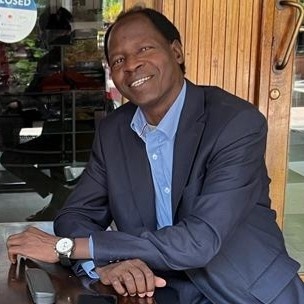South Sudan's English Daily Newspaper
"We Dare where others fear"

By Akol Miyen Kuol
A language is an important tool that its speakers use to communicate with each other. People also learn foreign languages for learning purposes and for communicating with the rest of the world.
A language is also used as a medium of instruction and official language of communication in public and private sectors. In some instances where there are many languages in a particular country, as is the case in our country, South Sudan, where there are 64 tribes, it is English which is the official medium of instruction.
At the same time, all national languages, are recognized by the country’s interim constitution as official. It is worth-noting that Arabic language is widely spoken in South Sudan. Arabic language was also widely spoken in the SPLM/A liberated areas during the time of the liberation struggle.
For example, in South Africa, all 11 languages are recognized as officials and they are enshrined in the Rainbow Nation’s constitution, that held its first democratic elections in 1994.
In Kenya, English and Kiswahili, are the two official languages of communication and instruction in both public and private sectors. Kenya is a multi-cultural country and it has over 40 tribes.
As for Tanzania, it is made up of 125 tribes, however the late Mwalimu Julius Nyerere, introduced Kiswahili, as the official language of instruction in schools, public and private institutions.
Mwalimu Nyerere, used Kiswahili as a means to fight tribalism in his country. Not only that, in the late 1950s, he formulated and introduced a theory called ‘Ujamaa’ as the (Basis for African Socialism).
He experimented it as a way to fight tribalism and unite the Tanzanian people regardless of their tribes, languages and religions. So, in order for him to be practical on that, he moved tribes from one place to another and mixed them together with Kiswahili as their medium of instruction and communication.
However, in the 2000s, Tanzania took some new major steps to catch up with the rest of the world. So, it introduced English and now people have started to speak it, after having united the people through Kiswahili.
Coming back to South Sudan, a polarized tribal nation, I think as time goes by, it will be very important to have both – English and Arabic – as medium of instructions due to the reality of our country, where both foreign languages are widely spoken.
There are positive sides in knowing the two languages, written and spoken, for business purposes, especially socially, and also politically, diplomatically, economically, culturally and strategically. They are both very important.
National languages should be taught in South Sudan, especially in the predominantly inhabited areas. For example, in the Collo (Shilluk), Zande and Anywaa (Anywak) kingdoms, their languages should be taught in their schools, beside both English and Arabic.
So, children from other tribes who reside in their kingdoms can learn their languages. The same thing with other tribes, such as the Bari speakers, Nuer, Dinka, etc.
Their languages can be taught in their schools and the children of other tribes, who reside in their lands, can also learn their languages.
Furthermore, the speakers of these tribes need to establish language centres, so that their children, adults, people from other tribes and foreigners can enroll in these centres and learn these languages.
UNESCO encourages teaching children in their first language (mother tongue). Also, our values, history, songs, can only be preserved by learning our mother tongues, both written and spoken.
In conclusion, I encourage the mixing of civil servants. In other words, civil servants should be transferred to different areas after every four years, so that they get to know each other.
Also, by doing so we’ll have fought tribalism and work on nationhood and nation-building. And by doing so we’ll have helped foster our national unity, where we will be looking at each other as a nation and not as tribes.
Furthermore, it would be good, if anyone, starting with the new generation, could be in a position to speak his/her mother tongue, English, Arabic, and two other national languages. Such a thing will help consolidate our unity as a nation.
We can achieve our national cohesion by learning a number of our national languages and by living and working in other tribes’ lands (states, administrative areas and localities). Together, we can unite and stabilize our beautiful nation, the Republic of South Sudan.
Note: The author can be reached on the following email: akolmiyen@gmail.com



